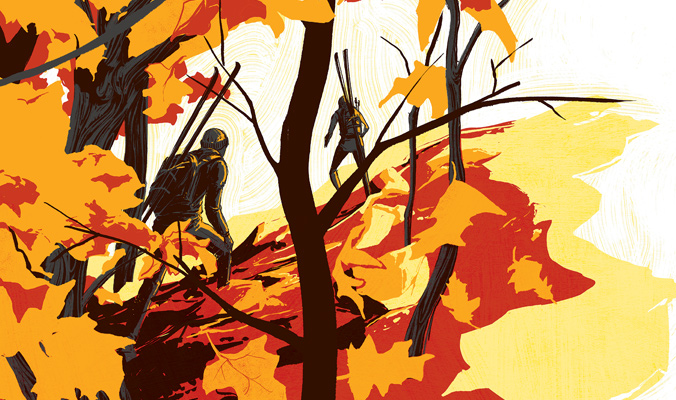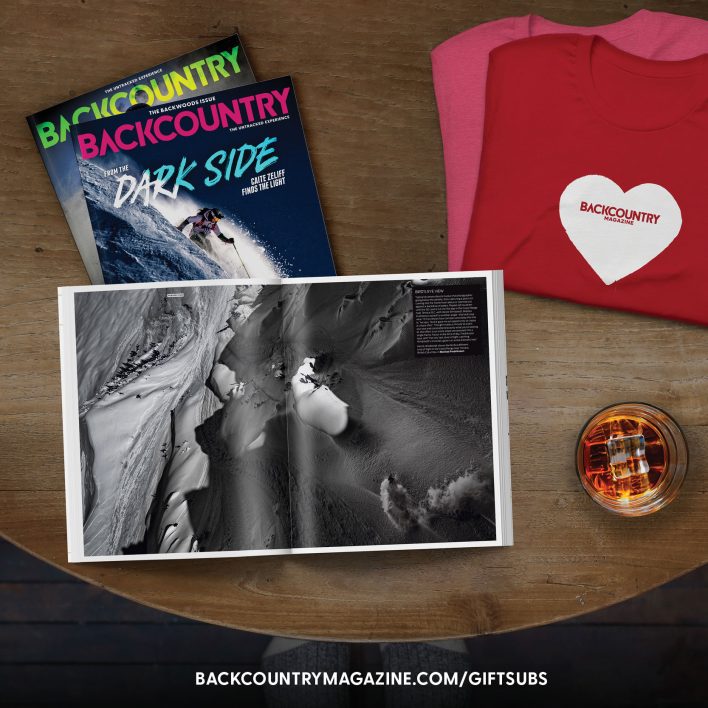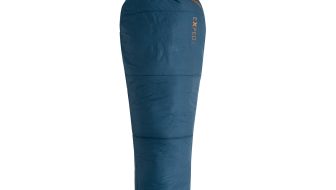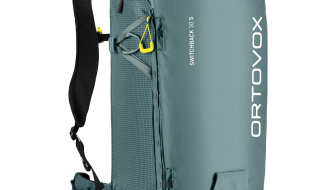
Illustration by Pat Kinsella
It was the time of year when it’s warm in the city and cool in the mountains, when the clear skies and crisp air beckon you to higher altitudes. Outside the city, leaves were painted in sleepy colors in preparation for the slow, fluttering journey to their final resting place. The hills gleamed gold as we wound up into them; the car’s thermometer registering lower and lower around each rocky switchback. Summer was fading and was winter still waiting. It was time to hunt down fall turns.
At the trailhead atop the pass, we swapped sandals for trail runners and strapped skis to our backpacks, setting off on the dry, rocky trail toward Skyscraper Glacier, tucked just below Colorado’s Continental Divide. With last year’s snow clinging in meager patches to rock faces, hikers seemed to wonder just where the hell we planned on going.
It would be several hours of hiking before we’d even put our skis on, before we would come face to face with the permanent snowfield we’d chosen as our goal for the day. In the fall you have to want it, you need to be willing to walk for it, you must believe that no matter what the circumstances, skiing is better than not skiing.
We followed the trail for a few miles, ascending from the pass to the ridgeline. To our left, I could see the bare runs of the nearby ski resort, ready to awaken from their pre-season slumber. Here, the bitter wind bucked me around, letting me know it wasn’t July anymore. It felt right, somehow, like coming home after a long journey, to be moving upward with skis on my back.
We consulted the map and, at the indicated spot, split from the trail, walking east toward the top of the glacier. Spreading out laterally, no longer confined to a specific trail, we scouted entry points, reveling in the terrain assessment, risk management and critical thinking that make backcountry travel come alive.
From the peak, we picked our way down loose scree to the small bench at the top of the glacier and sat down to put on our ski boots. Finally out of the wind that had lashed at us as we’d come over the Continental Divide, we savored the sun beating down and the soft snow under our feet. We had reached what we’d set out to find: that magical white substance that gets us up before first light and summons us into the high country time and time again. Two alpine lakes glittered below along a landscape entirely devoid of snow.
One by one we dropped in, traversing knee-high runnels and hop turning through pockets of dirt and rocks until we reached a cleaner section that allowed us a few smooth, glorious turns before the snow transitioned into boulders; before the glimmering illusion of winter vanished as if it were a mirage.
Our joy echoed off the rock walls towering above, the thrill of sliding downhill on snow amplified by the fact that it wasn’t yet winter, and we weren’t supposed to be able to do this yet. After a zealous round of high fives, we sat down on giant boulders to take off our boots and wipe the mud off our skis. We ate granola bars and let the we-just-skied-that feeling wash over us, lingering in the post-line glory for as long as we could. It wasn’t a pow lap, an Alaskan spine or an elegant couloir, but we had just gone skiing.
On our hike back to the car, winding through subalpine meadows flecked with orange and yellow, we discussed whether today counted as the last day of the previous season or the first day of the next. But we realized that perhaps we were looking at it all wrong—that skiing didn’t belong to a particular season, but to a frame of mind. That it would always be there for those who believed in it.










Related posts:
Photo Annual 2017: Liam Doran
Jeff Cricco takes perfect pow shot, everyone quits to go skiing
2017 Apparel Guide: The story behind the cult classic Kinco
2017 Apparel Guide: Timeless and Trending Midlayers